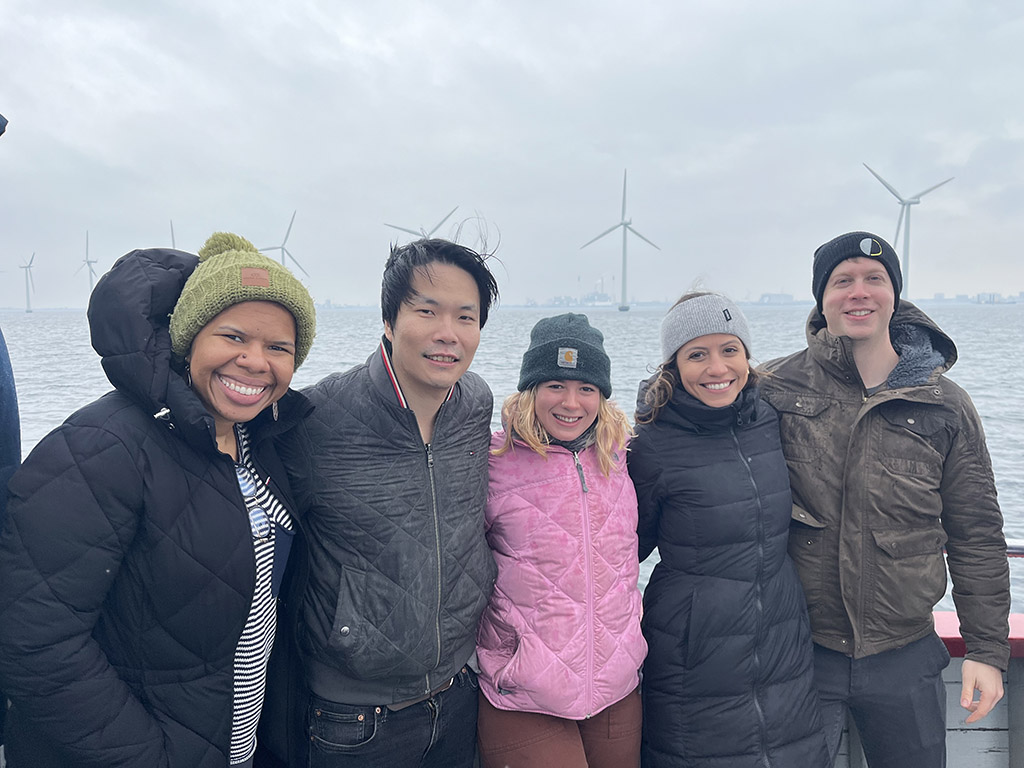Duke Daytime MBA Student Blog

My Experiential Learning Experience with ESG Investing
The CASE i3 Consulting Program was an extremely valuable experience to learn about capital allocation and impact management and measurement.

After six years in the nonprofit sector, I decided to go to business school to learn how to shift capital toward a more sustainable, equitable, and just world. I knew I wanted to attend a place that had a strong social impact focus.
The Center for the Advancement of Social Entrepreneurship (CASE) was one of the primary reasons for choosing Fuqua. CASE is an award-winning research and education center that has been a leader in the field of social impact, serving as a hub for teaching, research, and practitioner engagement for over 20 years.
One of the most rewarding experiences I had at Fuqua came as part of the CASE i3 Consulting Program, one of CASE’s experiential learning programs. It offers students direct experience with impact investing and sustainable finance. During my second year, I served as the co-manager of the Fuqua Sustainable Impact Student Investment Fund, Duke University’s largest student-run fund ($300,000 AUM). The fund invests in long-hold public equities with an environment, social, and governance (ESG) lens. In selecting and assessing potential investments, investments must meet financial performance and stability metrics, as well as impact performance or potential.
Hands-On ESG Investing
It was an extremely valuable experience to learn about capital allocation and impact management and measurement. It allowed me to get a better and more nuanced understanding of how ESG investing happens in practice. In particular, I learned three valuable lessons.
1. It’s all about tradeoffs.
ESG investing is very nuanced and there are no companies that are doing only good or only bad. It comes down to tradeoffs. For example, for Barry Callebaut, a cocoa company, investing heavily in environmental stewardship, sustainable ingredients, and farmer welfare meant it traded lower than its larger competitors. When deciding which companies to invest in, it is important to know what your intended outcome and values are. This can help ground the decisions and provide a “north star” when making tradeoffs.
2. Valuation is not just about numbers.
There are several assumptions that go into the valuation of a company that aren’t necessarily based on numbers and can lead to different results. When defining a growth rate for Barry Callebaut, we considered the potential of the company to expand into the gourmet sector and emerging markets. We also conducted a sensitivity analysis of our valuation with different weighted average costs of capital (WACC), which resulted in very different valuations.
Our pessimistic scenario had a 5% downside, while our optimistic scenario had a 46% upside. This variability is significant and highlights the importance of justifying the assumptions embedded in the financial model.
3. Reporting data is a barrier to entry.
Most companies only have self-reported data. This brought up questions about the validity of ESG claims. At the same time, the ability to have data validated and audited by a third party is limited to large companies with access to capital to conduct said verifications. The ESG investing sector relies on data and transparency. As a result, it is important to assess what type of data is needed and how much data is enough so that undue burden is not put on small- and mid-sized companies.
I came into the experience thinking ESG investing is straightforward. I was confused as to why it is considered a “niche” product for most financial firms. After FSISIF, I have a much more nuanced understanding of the complex issues ESG investors face.
Looking to the Future
The experience also led me to think through the limits of ESG investing and more deeply examine the challenges of using financial tools and systems that created many of the problems ESG seeks to solve in the first place. Financial markets have consistently rewarded financial returns at the expense of people and the planet. If we examine the best stocks in the S&P 500 (based on one-year performance) after health care, oil and gas companies rule the leaderboard.
Something has to fundamentally change if we want to build a more just and sustainable world – and experiences such as CASEi3 provide future leaders with the knowledge, expertise, and understanding to bring about this change.



